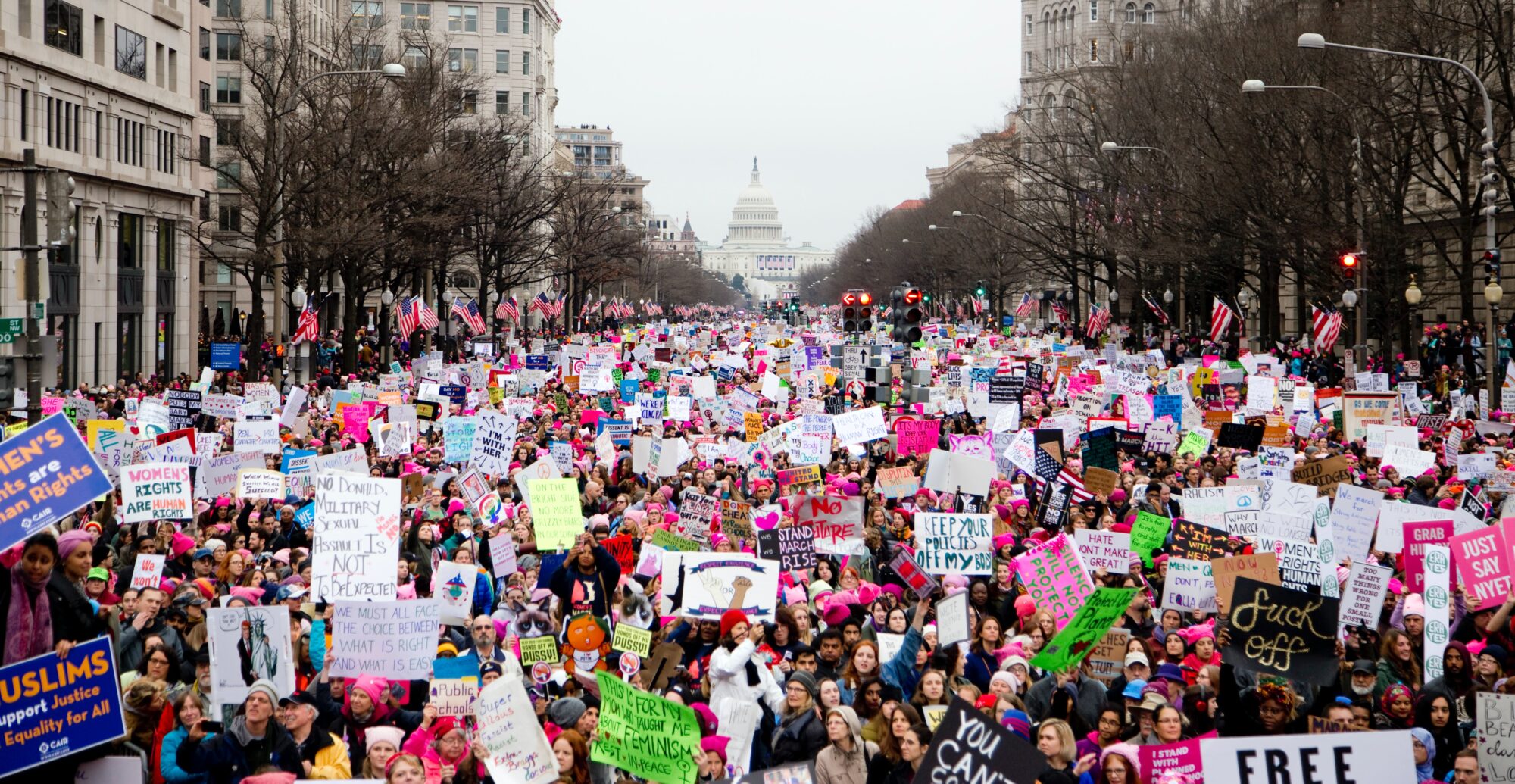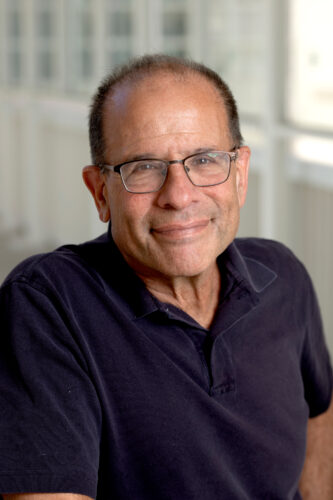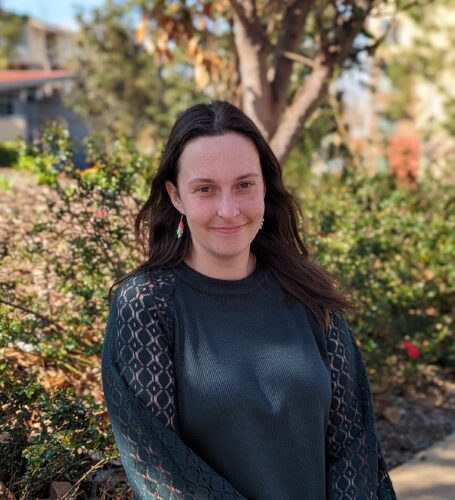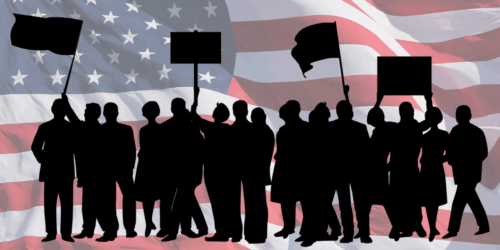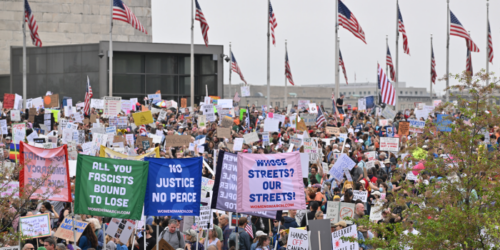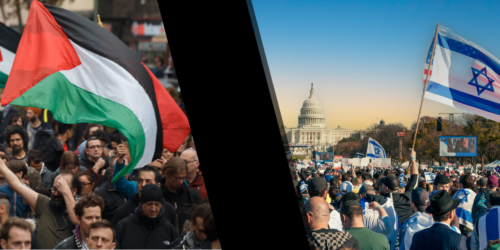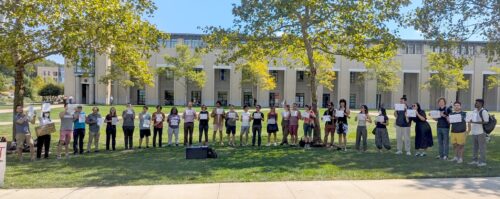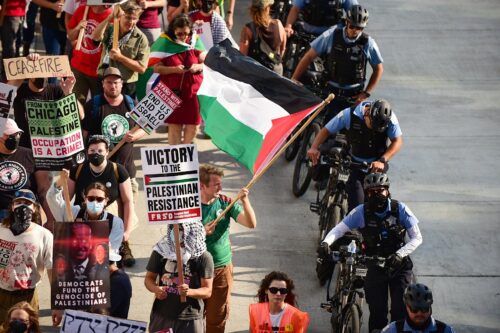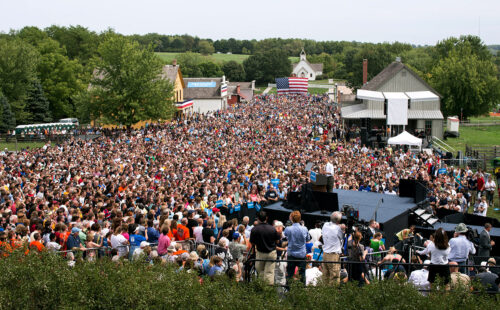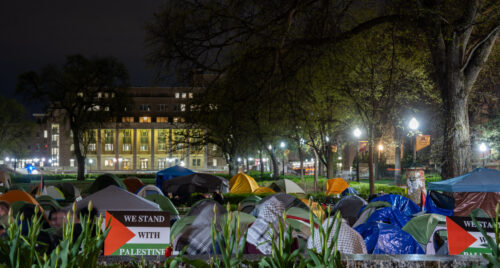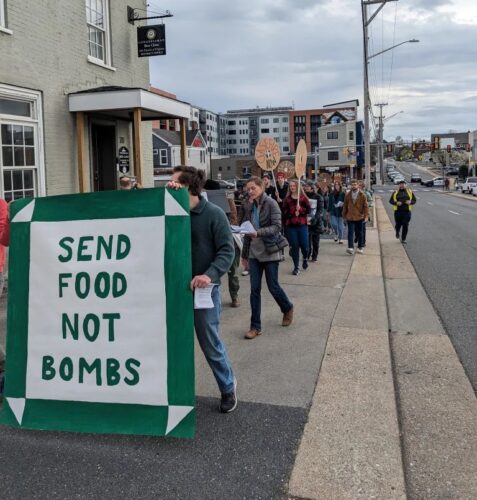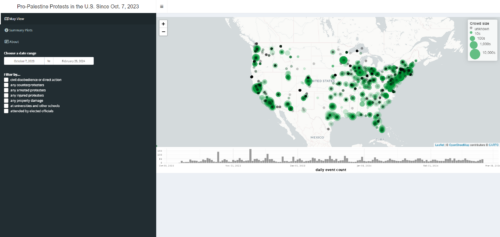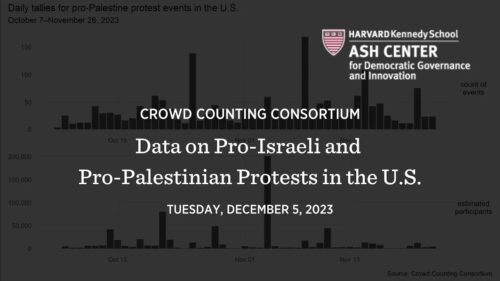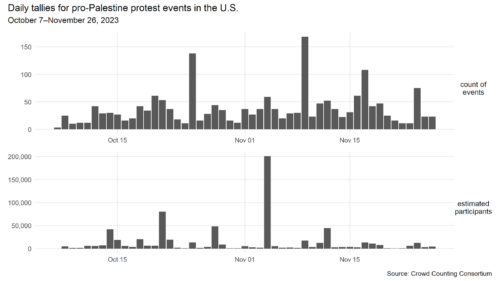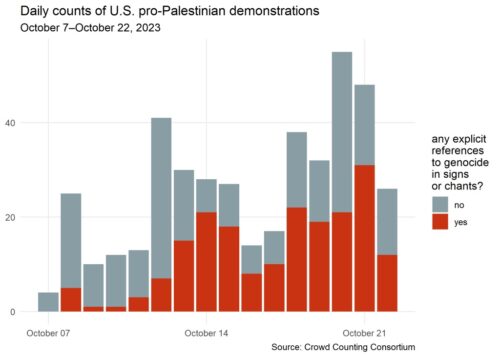
Erica Chenoweth
Frank Stanton Professor of the First Amendment
A public interest and scholarly project to document protests and demonstrations in the United States.
Nonviolent and Violent Campaigns and Outcomes Data Project, Women in Resistance Data Project
The Crowd Counting Consortium (CCC) is a joint project of Harvard Kennedy School and the University of Connecticut that collects publicly available data on political protest events reported in the United States, including rallies, marches, demonstrations, and acts of civil disobedience.
The CCC first emerged from a collaborative effort by Jeremy Pressman (UConn) and Erica Chenoweth (HKS) to estimate the number of participants in the Women’s March on Washington (and its affiliated sister marches nationwide) on January 21, 2017. Since then, the project has expanded to provide near-real-time information on trends in the occurrence, themes, and scale of American protest activity.
CCC data are published monthly on a publicly accessible Dataverse, for use by scholars, journalists, movement leaders, and others. The NVA Lab regularly publishes commentary and analysis pieces based on the CCC data, advancing both scholarly and public understandings of protest in the US.
Since its inception, the CCC data has been a valued public resource that has informed important conversations about American politics. Among other uses:
Academics routinely turn to the CCC data to study protest, counter-protest, and state response. Articles and essays published by the CCC team since 2017 have collectively garnered more than 600 scholarly citations so far. See the links below for academic articles we have published that draw on CCC data.
We are grateful to the many staff, volunteers, research assistants, and collaborators who have contributed to this project over the years, as well as generous financial support that has helped to sustain this project.
Frank Stanton Professor of the First Amendment
Research Project Manager, Nonviolent Action Lab
Senior Fellow, AY2025-2026
Senior Research Fellow, AY2025-2026
Predoctoral Fellow, AY2025-2026
Research Associate, Crowd Counting Consortium
Protest event data from CCC’s three phases — 2017-2020, 2021-2024, and 2025 to the present — can be downloaded from the project’s Dataverse.
We only post records that we can confirm and verify through fact-checking. When you submit a record, be sure to provide a source that is publicly verifiable (e.g. a news report, a Facebook group, links to online photos with headcounts, etc) or describe the crowd-counting techniques used by onsite onlookers (e.g. sign-ins, counting through distributing flyers/handouts, counting from photos/videos, and/or other crowd density estimation techniques).
We will never post, release, or share identifying information that has not already been reported in the public domain.
Nevertheless, we urge you to avoid including personal identifying information in your submission.
We collect publicly available data on political crowds reported in the United States, including marches, protests, demonstrations, riots, and other actions. We do not count crowds at meetings, teach-ins or academic workshops, panel discussions, fundraisers, or town halls.
Our goal is to make the aggregate data on crowd numbers publicly available for each event. We are collecting this data in the public interest and to further scholarly research.
This is a public-interest project. The University of Denver’s Office of Research Integrity and Education determined that the project does not qualify as human subjects research and therefore does not require further review or oversight by its Institutional Review Board. The University of Connecticut made a similar determination.
The data and associated documentation are shared via the Harvard Dataverse:
https://dataverse.harvard.edu/dataverse/crowdcountingconsortium/
Please include a citation to the Crowd Counting Consortium such as: Crowd Counting Consortium, crowdcounting.org, accessed September 17, 2021.
Funding is made possible in part by the Freedom Together Foundation, New Venture Fund, Humanity United, the John T. and Catherine D. MacArthur Foundation, the Ash Center for Democratic Governance and Innovation and the Carr Center for Human Rights Policy, the Weatherhead Center for International Affairs, the Radcliffe Institute for Advanced Study at Harvard University, the Human Rights Institute at the University of Connecticut, the Scheidt Family Foundation, Alan R. Bennett and the UConn POLS Honors Bennett RA program, and the Russell Sage Foundation. Previously, we received support from the Carnegie Corporation of New York through the Sié Chéou-Kang Center for International Security and Diplomacy at the Josef Korbel School of International Studies at the University of Denver and the Humility & Conviction in Public Life initiative, a project of the University of Connecticut’s Humanities Institute.
We have collaborated with countlove.org, a volunteer group that developed a webcrawler to identify protests and demonstrations on a daily basis.
Commentary
The historic number of No Kings Day protesters and their expansive geographic spread are signs of a growing and durable pro-democracy movement. This article was originally published in Waging Nonviolence.
Commentary
Contrary to conventional wisdom, the size and scale of anti-Trump protests this year have dwarfed those in 2017, and they have been extraordinarily peaceful. This article was originally published in Waging Nonviolence.
Article
From 7 October 2023 to 7 June 2024, the Crowd Counting Consortium recorded nearly 12,400 pro-Palestine protests and over 2,000 pro-Israel protests in the United States.
Commentary
Crowd Counting Consortium data show a resurgence of pro-Palestinian activism at U.S. colleges and universities as students have returned to school and started probing the limits of new restrictions on campus protests.
Commentary
As part of its regular work tracking political protest activity across the United States, the Crowd Counting Consortium (CCC) closely followed events around this year’s Democratic National Convention in Chicago.
Commentary
This post uses the Crowd Counting Consortium’s data on U.S. protest activity since 2017 to estimate and compare the average size of the crowds at political rallies featuring Donald Trump, Joe Biden, and, since late July 2024, Kamala Harris.
Commentary
Crowd Counting Consortium data show more than 3,700 days with pro-Palestinian protest activity at over 500 U.S. schools since October 7, 2023, including encampments at more than 130 of them.
Commentary
New Crowd Counting Consortium analysis from Nonviolent Action Lab Program Director Jay Ulfelder sets the record straight on arrests numbers and claims of violence stemming from protests sparked by the war in Gaza.
Commentary
The imminent famine in Gaza shows up in Crowd Counting Consortium (CCC) data as a sharp increase in references to hunger and starvation in protesters’ chants and signs.
Commentary
To make it easier to find up-to-date information on pro-Palestine and pro-Israel protest activity in the United States since October 7, 2023, the Crowd Counting Consotium recently created a pair of interactive data dashboards separately covering the two.
Video
On Tuesday, December 5th, 2023, experts from the Crowd Counting Consortium, a network of researchers tracking political demonstrations across the U.S., shared their most recent data on the multitude of pro-Israeli and pro-Palestinian protests held nationwide since October 7.
Commentary
Since October 7, the Crowd Counting Consortium (CCC) has recorded nearly 2,300 U.S. protests, rallies, marches, caravans, demonstrations, vigils, banner drops, and direct actions in support of Palestine or Israel, with hundreds of thousands of total participants on different sides of this mass mobilization.
Commentary
Over the past few weeks, the burst of pro-Palestine protests, rallies, demonstrations, vigils, and direct actions in the U.S. that followed Hamas’ October 7th attacks on Israel and Israel’s military response to them has swelled into a sustained wave that is almost certainly broader and larger than any previous pro-Palestine protest wave in U.S. history.
Commentary
Over the past 10 days, the wave of U.S. street activism supporting Palestine has accelerated. Since October 7, 2023, when Palestinian militants launched attacks on Israel that killed more than 1,400 people, CCC has logged 420 pro-Palestine rallies, protests, demonstrations, and vigils in more than 180 different cities and towns across 46 states, the District of Columbia, Puerto Rico, and Guam.
Commentary
Since the October 7 attacks on Israel, the U.S. has seen hundreds of vigils, rallies, demonstrations, and protests in response to those attacks and the political and military reactions to them.
